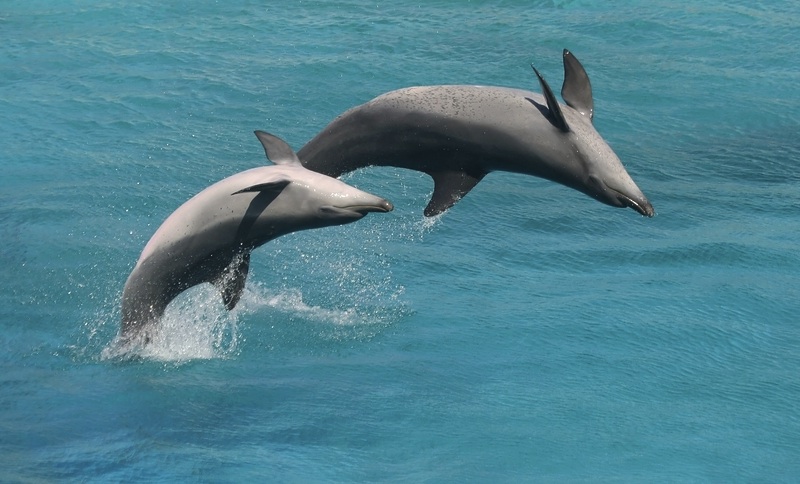BP Oil Spill May Have Contributed to Dolphin Deaths, Study Finds

The 2010 BP oil spill contributed to an unusually high death rate for dolphins in the Gulf of Mexico, a new study suggests.
Between January and April 2011, 186 dead bottlenose dolphins washed ashore between Louisiana and western Florida. Most alarmingly, nearly half of these casualties were calves, which is more than double the usual proportion of young to old dolphins found dead. Scientists now blame both natural factors and human catastrophe for the unusual die-off.
"Unfortunately, it was a 'perfect storm' that led to the dolphin deaths," study researcher Graham Worthy, a biologist at the University of Central Florida, said in a statement. "The oil spill and cold water of 2010 had already put significant stress on their food resources. … It appears the high volumes of cold freshwater coming from snowmelt water that pushed through Mobile Bay and Mississippi Sound in 2011 was the final blow." [Gulf Oil Spill: Animals at Risk]
Cold water and spilled oil
The winter of 2010 was a cold one, the researchers reported July 18 in the open-access journal PLoS ONE. Oil began spilling into the Gulf in April 2011, after the Deepwater Horizon platform exploded following a blowout.
The unusually harsh winter of 2010 already dealt wildlife a disadvantage, Worthy and his colleagues wrote. Finfish, marine birds, sea turtles and manatees had been hit hard, with about 6 percent of the U.S. population of manatees lost to cold weather.
Just before the baby dolphins began washing ashore in January 2011, meltwater from an unusually heavy Mobile Bay watershed snowfall hit the Gulf. A comparison of dolphin stranding sites and water conditions revealed that the discovery of the carcasses followed temperature dips from meltwater by two to three weeks, indicating that the dolphins were stressed, died, washed ashore and were eventually found and recorded.
Sign up for the Live Science daily newsletter now
Get the world’s most fascinating discoveries delivered straight to your inbox.
Normally, the researchers wrote, dolphins are able to withstand fluctuating temperatures. But a National Oceanic and Atmospheric Administration (NOAA) survey of Louisiana dolphins in 2011 found that the animals were overwhelmingly underweight and anemic, suggesting that they were already struggling before the cold water rushed into their habitat.
Stress on wildlife
The findings suggest, but don't prove, that the BP oil spill may have helped weaken the dolphins before the cold influx of early 2011 began, the researchers report. There is evidence that the oil spill affected the dolphin food chain, making prey scarce in the midst of the breeding season, they wrote.
Study leader Ruth Carmichael, a marine scientist at the Dauphin Island Sea Lab, said the combined factors led to distinct patterns in how the dolphins washed ashore.
"When we put the pieces together, it appears that the dolphins were likely weakened by depleted food resources, bacteria or other factors as a result of the 2010 cold winter or oil spill, which made them susceptible to assault by the high volumes of cold freshwater coming from land in 2011," Carmichael said in a statement.
Follow Stephanie Pappas on Twitter @sipappas or LiveScience @livescience. We're also on Facebook & Google+.

Stephanie Pappas is a contributing writer for Live Science, covering topics ranging from geoscience to archaeology to the human brain and behavior. She was previously a senior writer for Live Science but is now a freelancer based in Denver, Colorado, and regularly contributes to Scientific American and The Monitor, the monthly magazine of the American Psychological Association. Stephanie received a bachelor's degree in psychology from the University of South Carolina and a graduate certificate in science communication from the University of California, Santa Cruz.









